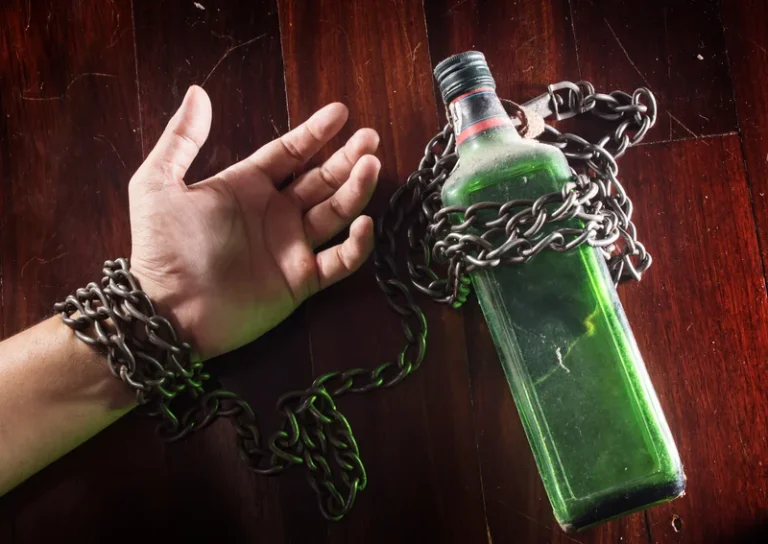
Healthcare providers will treat you to stabilize you (unless you have some kind of advance medical directive on file with them). They may also talk to family, friends or loved ones you previously https://ecosoberhouse.com/ approved to know and make decisions about your medical care. At Caron, we understand how difficult and overwhelming alcohol withdrawal can be. Not everyone will experience all of these symptoms, and the severity can vary greatly from person to person. No matter the severity of your symptoms, we at Caron strongly advise you to seek professional help in case of complications or a sudden increase in severity.

Your Body Starts to Detox

“My worst withdrawal symptom is that my brain does not seem to work very well. Lots of spelling errors and poor fine-motor skills. I will not even go into the insomnia.” “Physically, I feel fine now, but I still crave alcohol like crazy. That’s going to be the worst part.” “It’s the mood swings that scare me. One moment up, the next down, and no concentration. It’s hard to pretend to be happy and normal.” “Starting to feel a little better. If I had the money, I would have gone to a 30-day rehab. I am still having shakes now and again. My head is in a fog constantly.” “Feels like a mild flu, but the tension is unbelievable. I’m having more problems with stress, losing my temper, and generally being horrible to my loved ones.” Some are finally able to get some sleep at day five, whereas others still have problems sleeping.

Delirium Tremens
You’ll have more energy and stamina, and you may notice that your skin looks healthier. “I am going on seven weeks of being sober, and I could not be any happier.” “With hard work and vigilance, I am pleased to be getting more sober time in. I am exercising more and starting to decrease the number of herbs and vitamins I have been taking daily.”
Factors That Affect Alcohol Detox Symptoms
- Post-acute withdrawal syndrome (PAWS)—also called protracted withdrawal—can make it challenging to resist relapse.
- For help quitting, resources are available from the Substance Abuse and Mental Health Services Administration (SAMHSA) or the National Institute on Alcohol Abuse and Alcoholism (NIAAA).
- Many people feel shame or embarrassment asking for this kind of help, but your provider’s job is to help, not to judge.
- The main ways to prevent alcohol withdrawal are to avoid alcohol altogether or to get professional help as soon as possible if you think you’re developing alcohol use disorder.
The alcohol withdrawal timeline varies, but the worst of the symptoms typically wear off after 72 hours. People who are daily or heavy drinkers may need medical support to quit. Stopping drinking abruptly can lead to seizures and can even be fatal.
Withdrawal symptoms are symptoms that occur when a person who is physically dependent on alcohol reduces or stops drinking. They develop because of changes in the levels of excitatory and inhibitory neurotransmitters in the central nervous system. The brain, which has become alcohol detox side effects accustomed to alcohol, is unable to cope when alcohol is suddenly withdrawn, resulting in a range of physical and psychological symptoms. During a medically-supervised alcohol detox, a multidisciplinary healthcare team keeps you as comfortable as possible by managing your withdrawal symptoms. The team also manages any medical complications that arise during alcohol withdrawal. Most people experience alcohol withdrawal syndrome lasting for a few days to a couple of weeks after their last drink.
Withdrawal
- When you talk to your doctor about symptom relief, it’s a good idea to discuss treatment for alcohol abuse or dependence.
- This is because alcohol can cause depression, anxiety, and other mental health problems.
- “Physically, I feel fine now, but I still crave alcohol like crazy. That’s going to be the worst part.”
Reducing the risk of heart disease is one of the good side effects you should keep in mind. With 500,000 Americans receiving a heart failure diagnosis each year, heart health should always be a priority. The problem is that while many people want to stop drinking, their worries keep them attached to their addiction.
- We strive to create content that is clear, concise, and easy to understand.
- You may suffer from a memory disorder called Korsakoff’s syndrome, which is marked by amnesia and difficulty creating new memories.
- We offer inpatient, outpatient, and partial hospitalization programs for alcohol withdrawal, as well as long-term support and medical supervision following detox.
- The brain also begins to repair some of the damage and shrinkage you may have experienced while drinking.
- If left untreated, withdrawal can progress to complicated alcohol withdrawal.
Lower Your Blood Pressure
The first symptoms—and maybe the only symptoms—you experience may resemble a bad hangover. She adds that withdrawal can also occur after a significant reduction in alcohol consumption. It can be dangerous to quit alcohol cold turkey because of severe withdrawal symptoms that may occur, as well cardiovascular complications and mental health issues like depression or anxiety. Fortunately, our substance abuse rehab facilities at Ark Behavioral Health offer medically supervised alcohol detox. This type of detox program provides professional support as you go through alcohol withdrawal. After the acute alcohol withdrawal period, some people experience symptoms that last up to a year.
Acute & Post-Acute Withdrawal Syndrome
Alcohol use disorder is a pattern of alcohol use that involves problems controlling your drinking, being preoccupied with alcohol or continuing to use alcohol even when it causes problems. This disorder also involves having to drink more to get the same effect or having withdrawal symptoms when you rapidly decrease or stop drinking. Alcohol use disorder includes a level of drinking that’s sometimes called alcoholism.


A healthcare provider will treat this using drugs that reduce how active your CNS is. Other tests may be possible, depending on your symptoms or if you have any other health problems. Your healthcare provider can tell you more about the tests they recommend or used for you (or your loved one) and why. If you suddenly stop drinking, it’s like the alcohol side letting go of the rope. Suddenly, your CNS doesn’t have to pull back against alcohol to keep activity at a proper level. That means your CNS is much more active than needed, to the point that it negatively affects automatic body processes.
Those with a wider circle of support have a better chance of staying sober. There are many support options available that can help guide you through alcohol withdrawal, as well as abstaining from alcohol after withdrawal. Remember you are facing a difficult challenge during alcohol withdrawal, but you are not alone.
